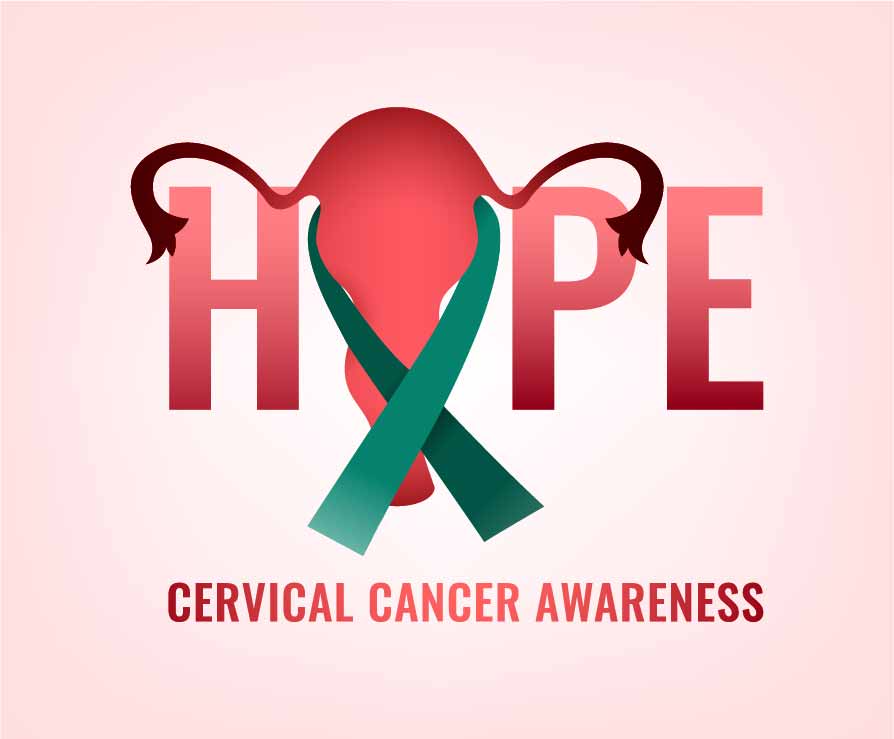In recent articles, we have highlighted both Breast cancer and Prostate cancer. In this article, we aim to provide useful information about Cervical Cancer as well as providing links to further information and support.
What is Cervical Cancer
Cervical Cancer mainly affects women aged between 30 and 45. The cervix is the entrance to a woman’s womb, cervical cancer is, in almost all cases caused by HPV. HPV is a very common virus that is passed through any type of sexual contact with both men and women. The NHS website says:
“There are more than 100 types of HPV, many of which are harmless. But some types can cause abnormal changes to the cells of the cervix, which can eventually lead to cervical cancer.
Two strains, HPV 16 and HPV 18, are known to be responsible for most cases of cervical cancer.
They do not have any symptoms, so women will not realise they have it. But these infections are very common and most women who have them do not develop cervical cancer. Using condoms during sex offers some protection against HPV, but it cannot always prevent infection because the virus is also spread through skin-to-skin contact of the wider genital area.
The HPV vaccine has been routinely offered to girls aged 12 and 13 since 2008.”
Cervical Cancer Symptoms
Quite often there are no symptoms associated with Cancer of the cervix, especially not during the early stages. This is why it is so important to have regular “Screening”. When symptoms do present the most common is abnormal vaginal bleeding. This might be during or after sex, in between your regular periods or indeed new bleeding after menopause. Abnormal vaginal bleeding doesn’t automatically mean Cancer, but you should consult with your GP (Doctor) as soon as possible.

Smear Tests
Cervical Screening or Smear Tests is the best way to protect yourself against Cervical Cancer. The NHS Cervical Screening Programme invites all women from the age of 25 to 64 to attend cervical screening. Their website states:
“Women aged 25 to 49 are offered screening every 3 years, and those aged 50 to 64 are offered screening every 5 years. During cervical screening, a small sample of cells is taken from the cervix and checked under a microscope for abnormalities. In some areas, the screening sample is first checked for human papillomavirus (HPV), the virus that can cause abnormal cells. An abnormal cervical screening test result does not mean you definitely have cancer. Most abnormal results are due to signs of HPV, the presence of treatable precancerous cells, or both, rather than cancer itself.”
Treatment
If diagnosed at an early stage it is possible to treat Cervical Cancer with surgery. In some cases this means removing the womb (hysterectomy). Another option for early-stage Cervical Cancer is to use Radiotherapy and more advanced cases are treated with a combination of Radiotherapy and Chemotherapy. These treatments can have significant, permanent side effects, including early menopause and infertility.
Early Diagnosis is Key
As with all types of Cancer, it is best if it is diagnosed early to do this it is imperative that you have regular Smear Tests. C’mon ladies stop putting these off – we know it is unpleasant and uncomfortable but catching it early is the key to successful treatment.
Further information about Cervical Cancer can be found here on the NHS Website
If you or a loved one is living with cancer or other long term conditions, we can help! We have a range of complementary therapies and counselling services to help with anxiety, sleep deprivation and to help manage pain. You can find out more about our support therapies here.

Recent Comments